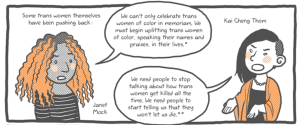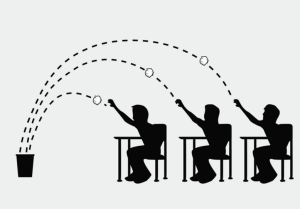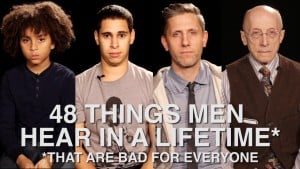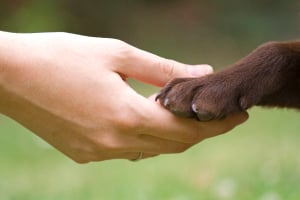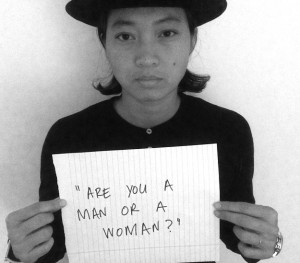
Source: Kevin Nadal
You think you know homophobia? Think again.
The run-of-the-mill, tactless, Bible-thumping conservative with a penchant for accusing queer people of pedophilia and bestiality isn’t the sole perpetrator of homophobia.
In fact, even your open-minded friends may have unknowingly made a homophobic faux pas or two.
You may have even done it yourself. I know I have.
You know those tiny backhanded comments that sound like compliments, but sort of negatively generalize groups of people? There’s a word for them: microaggressions.
What Is a Microaggression?
Simply put, a microaggression is a small remark or statement with harmful or discriminatory implications. If your social media newsfeeds are anything like mine, I’m sure you’ve heard the term microaggression used in the context of race.
Common racial microaggressions include showing surprise when a black person is eloquent or asking what country an Asian-American person is from. While these remarks may be made with friendly intentions, the outcome is the same: implicit stereotyping or othering people of color.
So, what does this have to do with queer people?
People who identify as LGBTQIA+ often face similarly backhanded commentary in their daily lives, even from well-meaning people. This type of discourse doesn’t look like extreme, full-on bigotry, but it perpetuates problematic ideas nevertheless.
Examples of Homophobic, Biphobic, and Transphobic Microaggressions
When you apply the concept of microaggressions to the LGBTQIA+ community, you will see that a seemingly benign comment can have a secret bite to it. And for the record, straight people are not the only people saying these types of backhanded remarks.
Here are some of the common microaggressions you may have heard regarding queer people:
- “You’re too pretty to be a lesbian.”
- “But are you sure you’re [insert identity here]?”
- “I like gay guys who aren’t, like, too gay, you know what I mean?”
- “Oh, she’s trans, but she’s really pretty. You can’t even tell.”
- “I mean, since she’s with a guy, she’s a non-practicing bisexual.”
None of these statements seem offensive outright. The intentions seem to be positive or analytical. However, as we have mentioned multiple times here on Everyday Feminism, positive intentions do not excuse us from negative results of our actions.
People make these comments because our culture has accepted homophobic, transphobic, and biphobic stereotypes as truth.
When someone tells me that I’m too pretty to be a lesbian, what they are really saying is that they believe that all lesbians are ugly or masculine.
When someone acts surprised that a gay guy isn’t flamboyant, what they are really expressing is that they assume that all gay men act like prancing musical theatre majors.
Talking about a trans person “passing” as if it’s an achievement implies that a trans person’s gender expression determines their worth (and it implies that gender is rigid enough to allow for rubric-like judgment!).
And don’t even get me started on the backhanded (and blatant) biphobia from queer and straight people alike.
Although an iffy-sounding compliment is a far cry from Westboro Baptist Church-level bigotry, the implications of homophobic microaggressions perpetuate harmful stigmas and stereotypes that affect queer people’s lives.
Sneaky Stereotypes
Microaggressions are a common way that stereotypes manifest themselves in daily life.
These comments generally translate to “Wow, I believe this negative stereotype about your community, but you’re different, so I like you!”
The effect of this type of microaggression is twofold: 1) It allows the negative stereotype to continue to exist; and 2) it stigmatizes anyone in the community who happens to fit the stereotype.
Usually, the people saying the microaggressions don’t even realize the implications or impact of their words. In fact, I frequently hear microaggressions coming from people who believe themselves to be progressive or open-minded.
This is a blessing and a curse.
Hopefully, this self-proclaimed progressive person will actually be open-minded enough to understand why microaggressions matter and will see the error of their ways.
However, false allies who choose to continue problematic behavior like microaggressions can wind up doing more harm than good by setting an example that stereotyping is okay.
Microaggressions and ‘Political Correctness’
Language and progressive movements are always changing. I hadn’t heard the term “microaggression” until about six months ago, and now it’s a topic I can discuss with my activist-y friends.
On the one hand, that’s a great thing- Terminology helps us identify our experiences, find common ground, and make real change.
However, not everyone is on board with making real change when they feel they are wrongly accused of discriminatory behavior. There is a nuance to microaggressions themselves, and activists must incorporate that same level of nuance when discussing them.
I understand why some people get frustrated with modern feminism’s insistence on the power of language. It can feel like the Feminist Language Police is always ready to write you a citation, even for a minor mistake. To be honest, I sometimes feel that way when I write for feminist audiences.
That kind of pressure is daunting, to say the least.
Sometimes, feminism’s reputation for debating and correcting problematic language makes the average layperson think that feminists make it a point to find fault with everything and/or need an attitude adjustment.
Public Service Announcement: Feminism does not exist to police the things you say or to make you feel guilty.
There are people who could read a piece like this and think, “I’ve said a microaggression, so now all the gay people think I’m a homophobe! I can’t please these people! Why even try?”
If you happen to feel this way, please know that everyone makes mistakes, from well-known activists to Hollywood actors and beyond. LGBTQIA-identified people sometimes say homo- or transphobic microaggressions, too. That doesn’t excuse the behavior, but it goes to show just how common it is.
If you happen to have said a microaggression, you are not alone, you are not a bad person, and you are now informed.
Now What?
So, now you can recognize homophobic microaggressions. You’ll start to hear them the way Pee-Wee Herman kept seeing those red bicycles everywhere. But how do you deal when someone you know says a microaggression?
It’s easier said than done.
Since microaggressions come across as casual and innocent, responding with anger (however justified) may backfire.
Here are some tactics that I use when I hear someone making a homophobic, biphobic, or transphobic microaggression:
1. Break the Stereotype
When I hear implicit stereotyping, I make it a point to respond with a short personal anecdote or cultural reference that defies whatever stereotype my friend has just expressed.
2. Point Out the Cliché
In my experience, microaggressions are generally made by people who think that their ideas (and underlying stereotypes) are unique, edgy, and/or incredibly observant.
When you let someone know that their microaggression isn’t that special, they may be able to put it together on their own that their remarks are way overdone.
3. Good Old-Fashioned ‘I- Statements’
You know what I’m talking about: “When people say [whatever microaggression you just heard], it makes me feel [however you feel] because it sounds like [implicit stereotype].”
And if you’re the one who has said a microaggression, there are ways you can prevent repeating your mistake. As I said before, we have all been there. Here are some things to consider before making comments about your LGBTQIA+ friends to make sure you aren’t veering into a microaggression:
1. Get to the Point
If you like that a gay male friend puts you at ease and makes you feel relaxed, you don’t need to bring his sexuality or gay stereotypes into the mix at all.
Don’t say “I like that you’re not hyper like normal gay guys.” Just let your friend know that being with him helps you unwind.
Not only are you avoiding a problematic stereotype, but it’s a more personalized thing to say anyway.
2. Ask Questions If You’re Unsure
If you don’t know if a generalization or comment is offensive, ask a friend who is part of the marginalized group what they think.
Don’t get me wrong: One member of a marginalized group cannot and should not speak for the entire group. However, it’s always a good idea to open up your mind and listen to others’ viewpoints and experiences.
***
Microaggressions are by no means the most discriminatory mistake you could make. However, they are everyday manifestations of discriminatory stereotypes.
In addition to faulty generalizations about queer lifestyle, microaggressions made about LGBTQIA+ people also rely on tired gender roles. The gist of many queer microaggressions is this:
“Queer people don’t act like ‘normal’ men and women, but you do, and that makes me feel comfortable with you! Congratulations!”
Long story short, most homophobic, biphobic, and transphobic microaggressions are discriminatory with a side of underhanded sexism.
Remember that sexism hides inside racism, homophobia, ableism, and other types of discrimination. Improving as an intersectional activist means that sometimes you’ll find multiple types of stereotyping or discrimination in casual, everyday behavior.
Here at Everyday Feminism, we strive to give you information and tools to handle situations that may arise in your day-to-day lives.
Will discrimination disappear completely? Probably not.
But we believe that you can make the choice to incorporate equality into your lifestyle.
It can be as simple as taking pause before making a statement or as grand as starting a revolution. Either way, you’re contributing to a much bigger movement. Thank you for that.
[do_widget id=”text-101″]
Maddie McClouskey is a Contributing Writer for Everyday Feminism. She’s a twenty-something lesbian in New York City and currently writes weekly dating advice pieces for the LGBTQ event app and website SheSeekOnline and was a regular contributor to the sexuality and feminism site ToughxCookies. When she’s not writing articles about gayness, she’s performing stand-up comedy, singing show tunes to her girlfriend and dog against their will, or making up jokes for Twitter @SoundofMaddie. Read her articles here.
Search our 3000+ articles!
Read our articles about:
Our online racial justice training
Used by hundreds of universities, non-profits, and businesses.
Click to learn more







